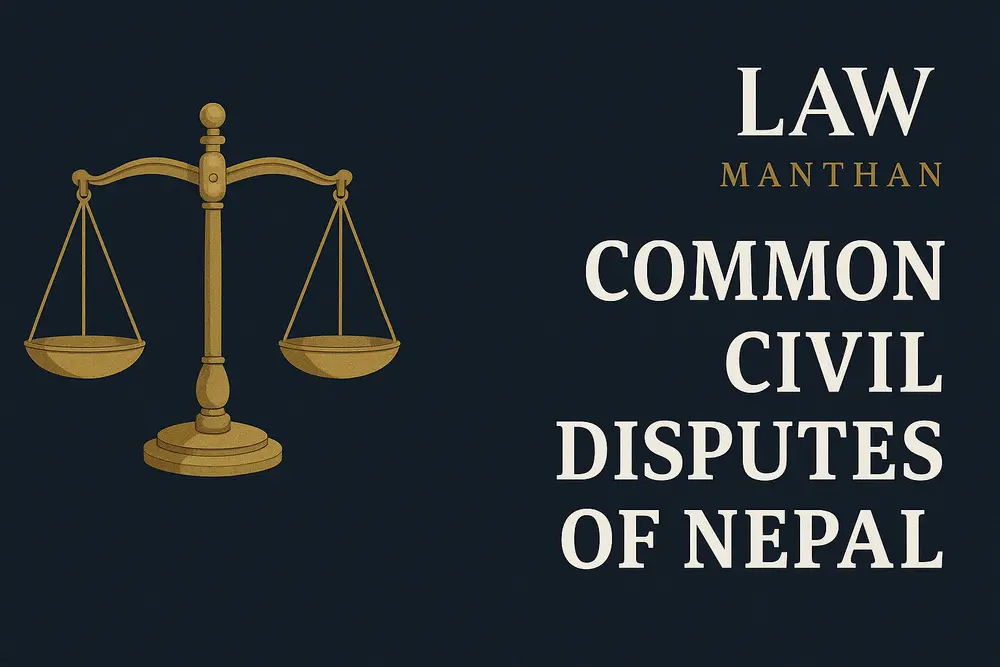In Nepal, civil disputes arise when individuals or families face conflicts over their personal or property-related rights. These disputes are not criminal in nature but can affect relationships, ownership, and daily life. The Muluki Civil Code, 2074 (2017) provides legal guidance to resolve these matters peacefully through the court. Let’s explore some of the most common types of civil disputes in Nepal.
Family Disputes
Family disputes are among the most common civil issues. These include disagreements between family members over roles, responsibilities, or misunderstandings. Sometimes, these also involve issues related to care for elderly parents, misuse of family property, or emotional neglect.
Property Disputes
Property disputes happen when people fight over the ownership or use of land, buildings, or other belongings. In many Nepali households, conflicts arise over ancestral property. These disputes often require legal documents and witnesses to prove ownership or rights.
Marriage and Divorce
Marriage-related disputes may include issues about registration, recognition, or denial of marriage. Divorce cases are also common when couples are unable to continue living together. Disagreements over alimony, child custody, or division of property after divorce often lead to court cases.
Partition of Property
When joint family members want to divide property equally, it leads to partition cases. The law allows each legal heir to claim their share of family property. These cases require clear proof of relationships and property details.
Adoption Disputes
Legal issues may arise during or after adoption, especially if the process wasn’t followed properly or if biological relatives challenge the adoption. The law ensures the adopted child gets equal rights in the family.
Contractual Disputes
When one party fails to fulfill the terms of an agreement, a contract dispute occurs. This could involve loans, house rent, business deals, or construction work. Such disputes need written agreements and proof of breach.
Succession and Inheritance
After the death of a family member, disputes over who gets what from their property often arise. Succession cases deal with identifying the rightful heirs. Inheritance issues are common, especially when there is no will or clear property division.
Relation of Parents and Children
Conflicts between parents and children can also turn into civil cases. This may include issues of maintenance, care, education, or property rights. The law protects the interests of both parents and children under family law.
Tort or Personal Injury Claims
If someone causes harm to another person—either physically or emotionally—the victim can claim compensation. This includes road accidents, defamation, or damage to personal property. These are known as tort cases.
Ownership and Possession
Disputes over who owns or possesses land, houses, or goods are frequent. Someone may have legal documents of ownership, while another person may be living there for a long time. Such cases need evidence of title or continuous possession.
In conclusion, civil disputes in Nepal touch many aspects of daily life—from family issues to property and contracts. The civil law system provides a peaceful and fair way to settle these problems and ensure justice. Knowing your rights and following the legal process is the key to resolving these matters effectively.




